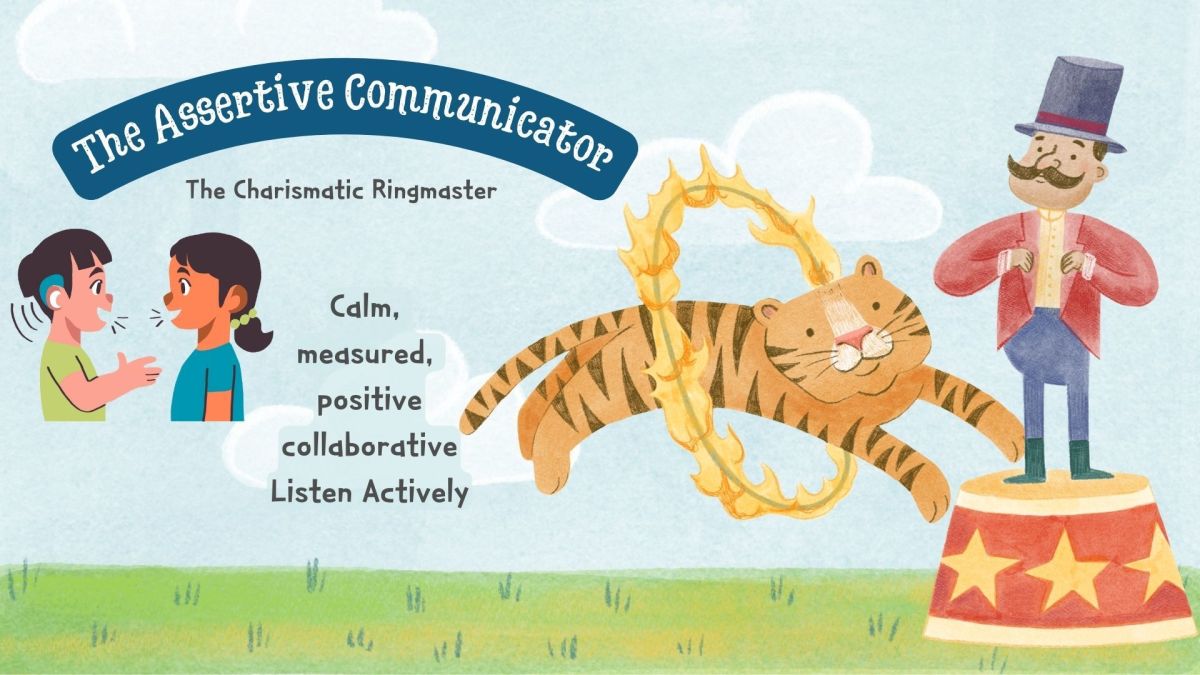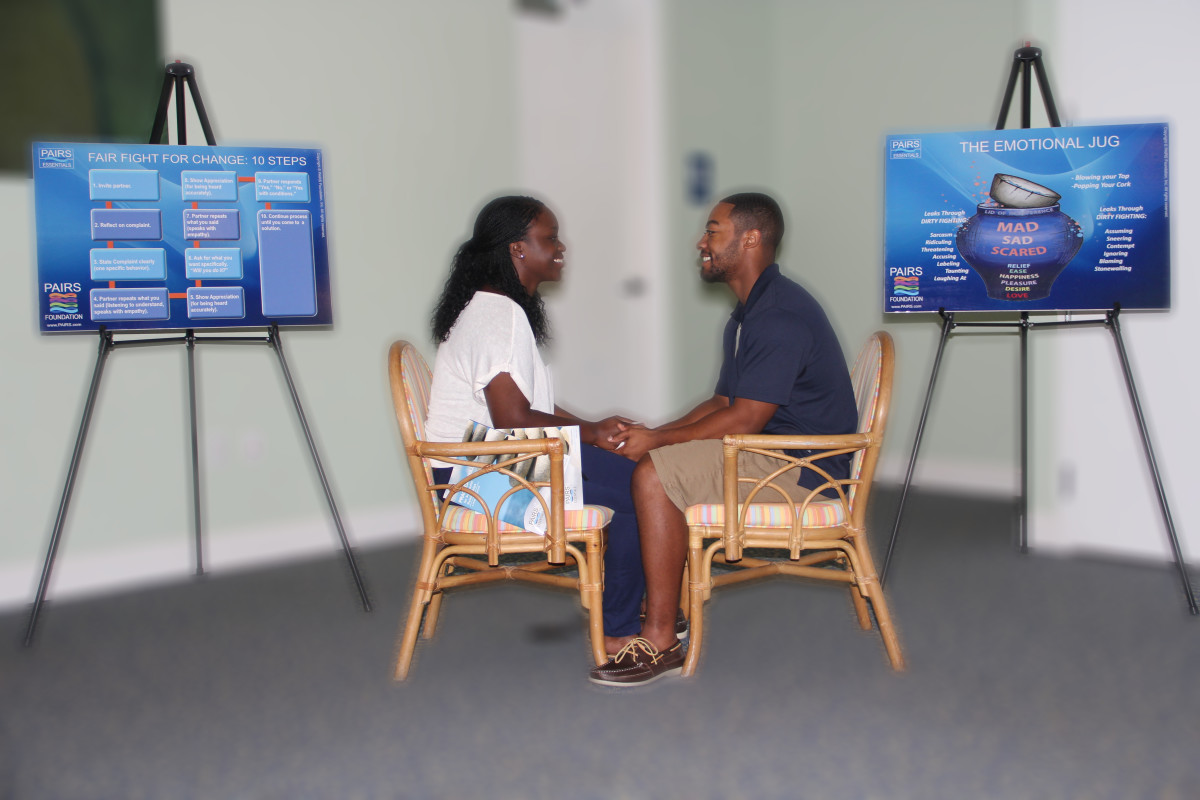Eater's Digest: Communication

Effective communication is crucial to maintaining and nurturing the supportive relationships that can be so helpful when you or someone you love has a chronic gastrointestinal (GI) condition.
Communication is the process of helping another person see in their mind what you see in yours. You may need to communicate requests, instructions or information about yourself and your experiences. It can be hard to convey feelings, motivations or deeper needs, because it requires going beyond what is on the surface, and putting an emotional context to your thoughts. Doing so, however, will help you receive the support that you need.
Communicating effectively about difficult issues like illness, sex and money can be especially hard. It may help to acknowledge the emotions related to sensitive subjects before attempting to talk about them.
Communicating Emotions
It may be hard to put words to emotions, but you express them anyway through body language; postures and movements, facial expressions and voice pitches and tones. There are also times when no action is communication. No words, no sounds or no gestures may convey "I need to withdraw" or "I am not ready." At least, they can be interpreted that way.
Without words to go with your emotions, others will read your body language, but they may not understand it the way you intend. Openly discussing your emotional experience will lower the chance that you'll be misunderstood. And the mutual, meaningful exchange that results will usually deepen your relationship.
Speaking from an "I feel" perspective can help another understand your emotions. For example, saying "I feel so sad about my test results, but I also feel loved by you" speaks in a simple, direct way to another person. It creates a risk of and opportunity for intimacy. Where there is a real possibility of being rejected, this emotional expression might be unwise, but in supportive relationships it can be a bridge.
A Question of Style
Understanding emotions and the words that describe them is one part of the effective communication that builds supportive relationships. The style used in communicating them is another.
There are four communication styles: assertive, passive, aggressive and passive-aggressive. Most of us use each of them at various times. However, we are typically most comfortable with one style and tend to use it more often.
An assertive communication style is the best for building true support. Mutual respect is an underlying principle and, as such, assertive statements are usually easier for others to hear and accept. Assertive communication helps build understanding, but maintains the integrity of everyone involved.
Becoming Assertive
Developing assertiveness skills can be challenging and, for some, uncomfortable. One tool that can help guide the process of framing assertive statements is the DESC method. Don't expect change to come quickly, but practice with the techniques will improve your skill.
For passive individuals, it may help to know that assertiveness is not the same thing as aggressiveness. By speaking up and making reasonable requests of others, you do not imply that you are more valuable. You assert that you are 'as valuable.' Being assertive also doesn't guarantee that you'll get all you want, or think that you need. But it will insure that your needs are clearly expressed. Without that, you are unlikely to find the support you want and need.
For those who tend to be aggressive communicators, developing a new set of skills can also be difficult. It is seductive to communicate a sense of power or control. Making demands usually gets you what you want, but it can also be isolating. If others feel disrespected and unheard, they will eventually pull away and may even become resentful or angry, leading to open conflict. In the end, aggressiveness usually leads to loneliness, a lack of connection to others, and no support.
Passive-aggressive communicators often don't understand why they have difficulty gaining support. The problem may be that they don't fully express their requests or expectations from the beginning. As a result, a potential ally can make false assumptions about the situation, and is unable to choose or change behavior based upon reality. A common pattern for passive-aggressive communicators is to let resentment build during a passive phase. Once they have 'had enough,' they switch to aggression or 'blow up.' This is confusing, and it can lead to frustration and missed opportunities for support.
Because they thwart the development of meaningful connections, poor communication skills can fuel stress, anger and depression. On the other hand, assertive communication skills promote healthy relationships and create more positive emotional experiences.
Active Listening
Effective communication also involves knowing how to listen. Listening is never passive; your own thoughts, ideas and perceptions color the words you hear another person speak. Offering feedback, asking questions and empathizing are all important for active listening.
To listen with empathy, try to hear your partner's emotional message, as well as his facts. Try to relate to his experience. Ask yourself how would you feel if this happened to you. Follow this reflection with feedback to your partner. Note the feelings you thought he expressed, and comment briefly on feelings the discussion stimulated in you.
Empathy, which means being able to relate, is sometimes confused with sympathy, or pity. Empathy flows two ways, and invites openness and deepening of the discussion. It promotes openness, trust and effective, supportive communication.
Give and Take
Being able to express thoughts clearly, share emotions and listen actively is an art even in the best of times. It becomes much more difficult when you or someone you care about has a chronic illness such as Irritable Bowel Syndrome or Crohn's Disease. All involved experience a wide span of feelings. Regardless of how strong any particular relationship is, individuals are sometimes just overwhelmed and unable to express themselves clearly. This is understandable, since strong emotions can override thoughts and reason. Sometimes, you don't need to talk. It's just enough to be present for each other.
When you do talk about difficult issues, it's helpful to do so without blame or guilt, and to listen to each other's unique set of challenges. Sharing positive experiences is equally important. Conflicts and misunderstandings occur in every relationship, and those confronted with long-term GI conditions are no different. However, the stress of your disease can add intensity to conflicts for both you and your loved one. Counseling or consultation may be helpful in some situations.
Last but not least, take time just to have fun together. Keeping life in perspective and the pleasures of your relationship alive can sometimes be as simple as it is enjoyable.








